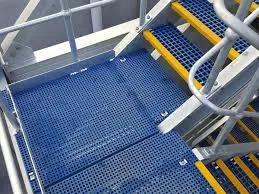
-
 Afrikaans
Afrikaans -
 Albanian
Albanian -
 Amharic
Amharic -
 Arabic
Arabic -
 Armenian
Armenian -
 Azerbaijani
Azerbaijani -
 Basque
Basque -
 Belarusian
Belarusian -
 Bengali
Bengali -
 Bosnian
Bosnian -
 Bulgarian
Bulgarian -
 Catalan
Catalan -
 Cebuano
Cebuano -
 China
China -
 China (Taiwan)
China (Taiwan) -
 Corsican
Corsican -
 Croatian
Croatian -
 Czech
Czech -
 Danish
Danish -
 Dutch
Dutch -
 English
English -
 Esperanto
Esperanto -
 Estonian
Estonian -
 Finnish
Finnish -
 French
French -
 Frisian
Frisian -
 Galician
Galician -
 Georgian
Georgian -
 German
German -
 Greek
Greek -
 Gujarati
Gujarati -
 Haitian Creole
Haitian Creole -
 hausa
hausa -
 hawaiian
hawaiian -
 Hebrew
Hebrew -
 Hindi
Hindi -
 Miao
Miao -
 Hungarian
Hungarian -
 Icelandic
Icelandic -
 igbo
igbo -
 Indonesian
Indonesian -
 irish
irish -
 Italian
Italian -
 Japanese
Japanese -
 Javanese
Javanese -
 Kannada
Kannada -
 kazakh
kazakh -
 Khmer
Khmer -
 Rwandese
Rwandese -
 Korean
Korean -
 Kurdish
Kurdish -
 Kyrgyz
Kyrgyz -
 Lao
Lao -
 Latin
Latin -
 Latvian
Latvian -
 Lithuanian
Lithuanian -
 Luxembourgish
Luxembourgish -
 Macedonian
Macedonian -
 Malgashi
Malgashi -
 Malay
Malay -
 Malayalam
Malayalam -
 Maltese
Maltese -
 Maori
Maori -
 Marathi
Marathi -
 Mongolian
Mongolian -
 Myanmar
Myanmar -
 Nepali
Nepali -
 Norwegian
Norwegian -
 Norwegian
Norwegian -
 Occitan
Occitan -
 Pashto
Pashto -
 Persian
Persian -
 Polish
Polish -
 Portuguese
Portuguese -
 Punjabi
Punjabi -
 Romanian
Romanian -
 Russian
Russian -
 Samoan
Samoan -
 Scottish Gaelic
Scottish Gaelic -
 Serbian
Serbian -
 Sesotho
Sesotho -
 Shona
Shona -
 Sindhi
Sindhi -
 Sinhala
Sinhala -
 Slovak
Slovak -
 Slovenian
Slovenian -
 Somali
Somali -
 Spanish
Spanish -
 Sundanese
Sundanese -
 Swahili
Swahili -
 Swedish
Swedish -
 Tagalog
Tagalog -
 Tajik
Tajik -
 Tamil
Tamil -
 Tatar
Tatar -
 Telugu
Telugu -
 Thai
Thai -
 Turkish
Turkish -
 Turkmen
Turkmen -
 Ukrainian
Ukrainian -
 Urdu
Urdu -
 Uighur
Uighur -
 Uzbek
Uzbek -
 Vietnamese
Vietnamese -
 Welsh
Welsh -
 Bantu
Bantu -
 Yiddish
Yiddish -
 Yoruba
Yoruba -
 Zulu
Zulu
frp trough cover
Understanding FRP Trough Covers Strength, Durability, and Versatility
Fiber Reinforced Polymer (FRP) trough covers have gained significant attention in various industries due to their remarkable properties and versatile applications. These lightweight yet strong materials combine the strength of fiberglass with polymers, making them ideal for environmental and structural applications. This article explores the characteristics, benefits, and uses of FRP trough covers, showcasing why they are becoming increasingly popular in diverse fields.
What is FRP?
FRP, or Fiber Reinforced Polymer, is a composite material made of a polymer matrix reinforced with fibers, typically glass or carbon fibers. This combination offers exceptional strength-to-weight ratios, making FRP an attractive alternative to traditional materials like steel or concrete. The lightweight nature of FRP allows for easier handling and installation while still providing outstanding mechanical performance.
Key Characteristics of FRP Trough Covers
1. Strength and Durability One of the standout features of FRP is its high tensile strength. FRP trough covers can withstand heavy loads and harsh environmental conditions without succumbing to deformation or damage. Their resistance to corrosion and chemicals also ensures a longer lifespan, reducing maintenance costs over time.
2. Lightweight Composition Compared to traditional materials, FRP is significantly lighter. This characteristic allows for simpler and faster installation, reducing labor costs. The easy handling of FRP trough covers also minimizes the risk of injury during transportation and installation.
3. Weather Resistance FRP materials are designed to withstand a variety of environmental stresses, including extreme temperatures, moisture, and UV exposure. This weather resistance makes FRP trough covers suitable for outdoor applications where traditional materials might fail.
4. Customization FRP can be produced in various shapes, sizes, and colors, offering a high degree of customization. This flexibility allows industries to tailor trough covers to specific needs, whether for aesthetic purposes or functional requirements.
frp trough cover

5. Non-Conductive Properties FRP materials are non-conductive, making them an ideal choice for electrical installations. Their insulating properties ensure safety in applications where electrical hazards are a concern.
Applications of FRP Trough Covers
FRP trough covers serve a wide range of industries, each leveraging the unique properties of the material to meet specific needs.
- Water and Wastewater Management In municipal applications, FRP trough covers are often used to cover channels, tanks, and other water containment systems. Their corrosion resistance makes them perfect for environments that experience frequent exposure to water and chemicals.
- Agriculture In agricultural settings, FRP trough covers can protect livestock feed from the elements, preventing spoilage due to rain or pests. Additionally, they can be used in irrigation systems, ensuring minimal loss of resources.
- Transportation Infrastructure Roadways and bridges can incorporate FRP trough covers for drainage systems. Their light weight and high strength make them a perfect fit for these critical infrastructure projects, optimizing both safety and functionality.
- Industrial Applications Factories and processing plants find FRP trough covers invaluable for guarding equipment, covering tanks, or as part of supply chains. Their resistance to chemicals and easy cleaning properties contribute to effective operational efficiency.
Conclusion
FRP trough covers represent a fusion of modern engineering and traditional utility. Their lightweight nature, exceptional strength, and resistance to environmental factors make them a formidable choice for a multitude of applications. As industries continue to seek innovative solutions that enhance durability and efficiency, FRP trough covers will undoubtedly play a pivotal role in the evolution of materials used in construction and infrastructure. By understanding the unique advantages of FRP, businesses can make informed decisions that will not only meet but exceed their operational expectations. Whether in agriculture, infrastructure, or industrial sectors, FRP trough covers offer a practical and forward-looking solution to contemporary challenges.









